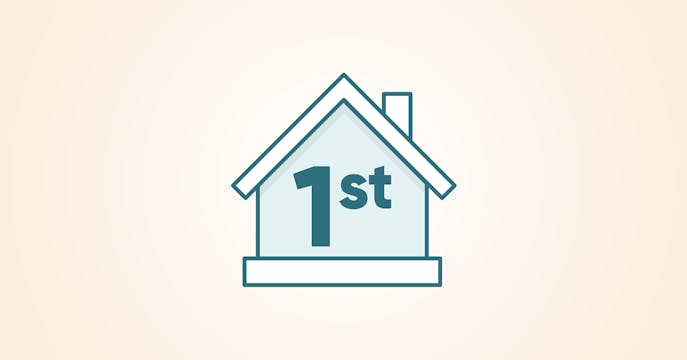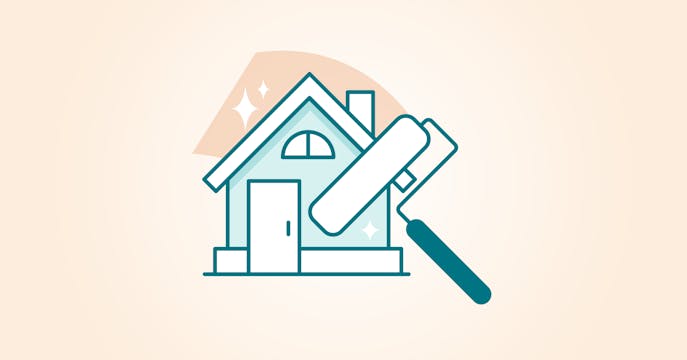Lowest Mortgage Rate in Canada. Starting from 2.49%
2019 Election Results
A new minority government formed by the Liberals and NDP
What does it all mean for Canada’s housing market?
What does a minority government mean for Canadian homebuyers?
Justin Trudeau and the Liberal Party now have a minority government, together with the NDP. The results of last week’s Federal Election will have ripple effects across every Canadian market, including housing.
In fact, homeownership was one of the hottest issues during the campaign, featuring prominently in nearly every leadership debate. It's difficult (if not impossible) to truly know which campaign talking points will make their way to meaningful legislation over the next few years. So, we’ve partnered with our friends over at REW.ca to look at what Justin Trudeau’s Liberal Party and their minority government might mean for Canada’s home buyers and sellers.
A quick disclaimer: The following talking points are purely speculation, based on pre-election platforms released by each party during their campaign, along with some best estimates from political and industry journalists.
A minority government means finding cooperation.
To add a little context to the minority government aspect, we can look at the history of minority governments in Canada. There are two things that come to the top. First, even without a ruling majority, legislation will still likely get passed. The Liberals will need to look to the NDP as allies, or try to reach across party lines to their official opposition (the Conservatives). But, governments need to govern, and a minority government will try to find the best way forward.
Second, minority governments rarely last their entire five-year term, with most ending up somewhere around the two-year mark before another election is called. A minority government may still have a major impact on federal issues, but the possibility exists for the power dynamic in Canadian politics to change again before too long.
What is the potential impact on housing affordability?
With many Canadians still feeling priced out of home markets across the country, it’s no surprise that home buying affordability was a key election issue. Every party made 'easier home buying' one of their top campaign priorities. The difference is how each one talked about addressing the issues.
The NDP posed creating heavier taxes on real estate speculators (those that buy on lower prices, then sell when prices inflate). The Conservative party pitched changes to the mortgage stress test (we talk more on this a bit further down). The Liberal Party's plan was to lean harder on one of their newest pieces of legislation: The First-Time Home Buyer Incentive (FTHBI). Whether the Liberals will be able to pass their desired legislation under minority rule remains to be seen.
Improvements to the First-Time Home Buyer Incentive program
Just launched in September 2019, the FTHBI aims to help first-time buyers by providing a credit on homes up to $500,000 for families under a certain household income threshold. Speaking on the campaign trail, Justin Trudeau committed to expanding the program, with an initial proposal of raising the eligible home value to $750,000 and the household income cap to $150,000. This expansion would undoubtedly make the FTHBI more inclusive and useful, hopefully leading to increased home-purchasing power for Canadians.
Critics of the program argue that it doesn’t go far enough. Liberals have acknowledged that even a raise to $750,000 to reflect actual market prices may not be enough to help would-be buyers in hotter areas like Vancouver, Victoria and Toronto. The average home cost in Vancouver last year was $986,000. In the Greater Toronto Area, it was $806,000.
How can the mortgage stress test and amortization impact affordability?
The Conservative party had focused on two things as possible salves to assist housing affordability: address the current 'stress test' used by banks and mortgage lenders, and increase the maximum mortgage amortizations from 25 years to 30 years.
The federally-required stress test exists to set a base financial bar that Canadian home buyers need to pass in order to get approved for their desired mortgage (and desired property). Andrew Scheer and his party viewed the test as too restrictive and a major impediment to homeownership for many buyers. While the stress test may seem overly-cautious to some, its proponents argue that it benefits consumers because it helps ensure that they don’t commit to an unaffordable mortgage, or get caught in a financial mess if mortgages rates rise (which are currently at an historic low). On the other hand, longer mortgage amortizations would allow consumers to lower their monthly payments, even though they'd be on the hook for the loan an extra five years (and pay more interest).
These two affordability talking points will remain significant in the next few months. Whether or not the Liberals had envisioned them as a part of their future housing platform, policymakers may choose to include one or both items in their plans in an attempt to build bridges with Conservative members of parliament. Minority governments can often lead to strange bedfellows in dealing with political goals.
Restrictions on foreign buying
One issue that saw alignment across parties was the need to place limits on foreign and speculative property buying. Home prices were continuing to outpace wage growth in certain areas, and the recent tax implementations on foreign buyers in Vancouver and Toronto were, for the most part, helpful in de-escalating these markets. The Liberals and NDP found common ground with wanting to further limit speculative housing purchases. The Liberals proposed a 1% federal tax on all vacant properties owned by non-Canadians who live abroad, where as the NDP proposed a one-time purchase tax. Whatever form it will take, all signs point toward some form of new taxation designed to limit foreign buying and, therefore (in theory) to help more Canadians access the housing market.
Create more affordable housing
When it comes to affordable housing, the Liberals and NDP may again find common legislative ground. The Liberal Party and the NDP both made campaign promises to increase the supply of affordable housing for lower-income Canadians and veterans, with the Liberals pledging 15,000 affordable-housing units a year and the NDP, 50,000. Both promises centered on creating new tax incentives for builders to help move projects forward, along with ideas such as eliminating GST/HST on the construction of new affordable housing.
Green building incentives
The climate crisis loomed large over many election issues, including housing. If re-elected, the Liberals promised that they would offer interest-free loans of up to $40,000 to help homeowners and landlords retrofit homes to make them more energy-efficient. This incentive may help move the needle on older properties, as homebuyers could see major renovations as a more palatable option with this type of lending available.
Other eco-focused items discussed by the Liberals include creating a $5K Net Zero Waste Homes Grant on qualifying new homes, and a $100M investment in skills training for workers relating to energy audits retrofits and net-zero home construction.
How will things really change in the housing sector? Only time will tell.
For home buying and selling, this quick look at the next few years of a Liberal minority government will look helps to prepare for possible changes on the horizon. With so much public pressure on issues surrounding housing and home affordability, Justin Trudeau and his party will undoubtedly feel the need to act sooner rather than later.
Get all the answers as changes come up.
Our friendly True North Mortgage brokers know mortgages — it's all they do. They're on top of any changes that do happen, and have a good idea of what might be looming. Salaried and unified, they have your best mortgage-interests at heart. They'll easily help find your better rates and options in these uncertain times.
We really know the mortgage landscape.
better mortgages, for all your needs

Proof that our rates are lower.
Our rates are 0.18% lower on average compared to everyone else. Prove it? Okay!

First-Time Home Buyers
Get the best start and save a pile of cash with our mortgage experts.

Purchase Plus Improvements
Need to renovate? Welcome to loan sweet loan. One manageable mortgage, one best rate.

